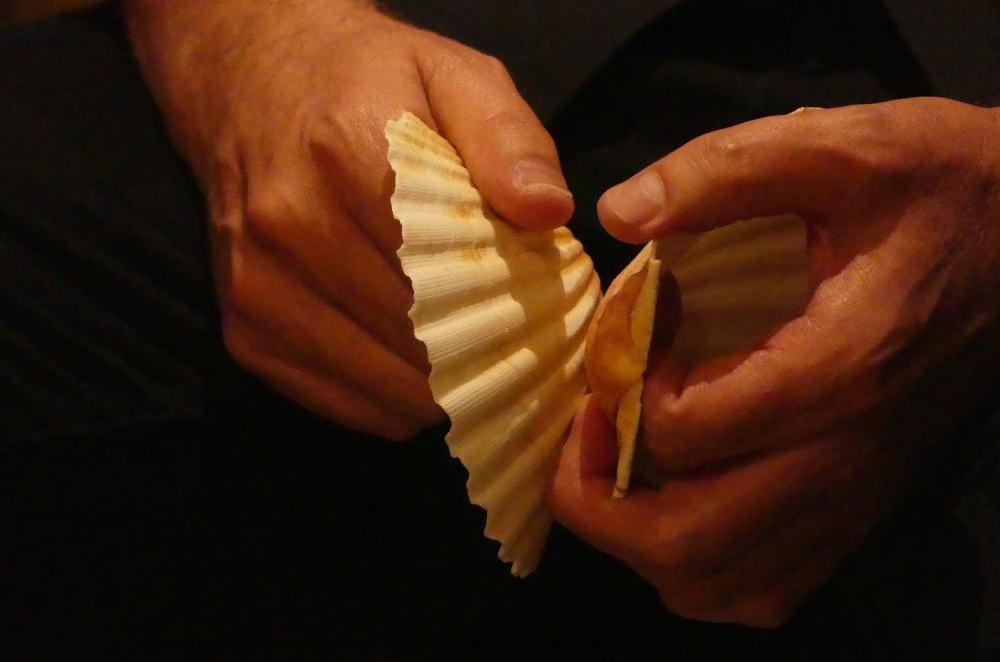

Os do Fondo da Barra
The first real living musical tradition that I encountered live was in the late 1960s in the streets and bars of the village of A Guarda on the northern bank of the river Miño, Galicia’s border with Portugal, during the Fiestas del Monte, which focuses on the romería, a pilgrimage to the shrine on Monte Santa Trega. The stirring robustness of Galicians singing together, in harmony with prominent thirds, with the skirl of gaitas, clatter and thump of pandeiretas and bombo and clickety-rub of cunchas; those sounds, the memorable melodies and spiritedness made a deep impression, and Galician music has remained close to my heart and musical life.
So when I was invited to the basement performance by Os do Fondo da Barra in October 2023 in A Coruña, I didn’t hesitate, and it was no disappointment. This, their first album, BâNZô, pretty much reflects what we heard that night - strong male group vocals with the aforementioned accompanying instruments in traditional songs - muiñeiras, pasodobres, a xota and more. (The photos and video clip here were taken at that event). One track here, though, “Ronda da Coruña,” brings in an ominous synth-ish drone under alternating solo vocals. While being very much a lively present-day thing, not a historical exercise, the group reflects and draws upon the repertoires of the old Galician corales or coros, the singing, playing and dancing ‘grupos folkloricos’, members of which would have been among those I heard in A Guarda. These, despite the politico-cultural hoops they had to jump through to be acceptable to the regime, managed to find ways to help keep the spirit of the vocal and instrumental tradition alive through the repressive years of the Franco dictatorship, and the album’s booklet notes pay tribute to their work. (Two of the oldest corales, Cantigas e Agarimos and Coral De Ruada, both formed a century or so ago and appearing on records at various times since then, are still in existence).
Further listening: Search RootsWorld
|